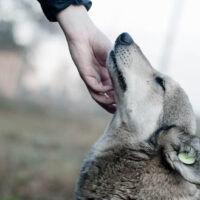Can I Leave an Inheritance to My Pet?

Every so often, you will hear a story about someone who tries to leave their estate to their pet. Indeed, such a story occurred earlier this year in Florida. An 84-year-old woman passed away and left instructions in her will that her seven Persian cats should continue to live in her 4,000-square-foot home for the rest of their lives.
The probate court refused to allow the cats to continue living in an empty house–valued at over $2.5 million–by themselves. Instead, the animals were turned over to the local Humane Society and placed for adoption. But the court did approve an “inheritance” for the cats to help to cover their food, medical, and grooming expenses, according to the Tampa Bay Times.
What You Need to Know About Washington Animal Trusts
It is, in fact, legal to set aside money for the care of your animals after you die. This is known as a pet trust. Washington law expressly recognizes such trusts. But it is important to understand that a pet trust is not really an inheritance left to your pets. As much as you may think of your pets as family members, they are still classified as property under the law. Property cannot inherit property. You can, however, leave money in the care of a trustee with instructions on how to use those funds to ensure your pets receive adequate care after you are gone.
Here are a few things to keep in mind about Washington pet trusts:
- The trust must identify the pets covered. The trust itself can only last as long as one of the identified pets is still living. But you can include language terminating the pet trust earlier.
- A pet trust can be a separate written document, similar to a revocable living trust, or it can be created through language in your trust, will or a codicil (amendment) to your will. In the latter case, the pet trust will not come into existence until after you die.
- The person named as trustee of the pet trust does not have to be the same person you designate as custodians for your pets. The trustee is responsible for administering the trust property and using its funds to provide for the care of your pets as you direct.
- If you fail to name a trustee for your pet trust, or the trustee you nominate is unable or unwilling to serve, a judge will appoint a trustee. Any person with an “interest in the welfare” of the animal may also petition the court to appoint or remove a trustee.
- Unless you direct otherwise, or a court intervenes, the trustee of a pet trust does not have to file any sort of periodic report or accounting.
Speak with a Spokane Estate Planning Lawyer Today
Taking care of your beloved pets is just one of many issues you need to consider when making an estate plan. Our Spokane estate planning attorneys can guide you through this process. Contact Moulton Law Offices, P.S., today to schedule a consultation. We serve clients throughout Spokane, Kennewick, and Yakima.
Source:
apps.leg.wa.gov/RCW/default.aspx?cite=11.118&full=true&pdf=true
